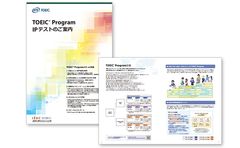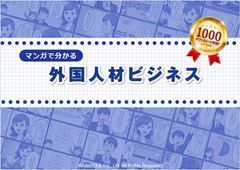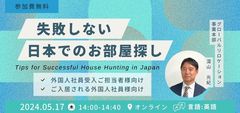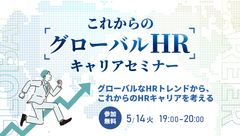ポイント4.インプットとアウトプットのバランス
One of the difficulties of designing a training program about the Corporate Philosophy is striking the balance between “input” and “output”. Because such a program requires that information gaps be minimized, there may be a need to take time for explanatory lecture time. However, many training participants start to lose focus and attention wanes when lecture time is long. Therefore, when designing a program, it is important to consider the balance of lecture time (input) to other more active activities (output). In the pilot sessions of one company’s program, I had designed the morning time to be composed primarily of lecture, albeit with ample breaks and strategically planned group work to confirm understanding of the lecture points at both the mid-point and the end of the lecture portion of the training. Later, after developing and confirming the points that should be included in the lecture for the optimal understanding of the participants, I created an e-learning module; the e-learning module is now used as a pre-training assignment. In this way, the e-learning module provides training participants with consistent lecture information, and at the learner’s desired pace. After implementing the e-learning, the morning portion of the training now consists of active discussion regarding the points learned from the e-learning module.
企業理念研修プログラムの作成に伴う難題の1つは、「インプット」と「アウトプット」のバランスを図ることです。こうしたプログラムにおいては情報格差を最小化する必要がありますから、講義に時間をかけることが必要かもしれません。けれども、講義が長くなると、多くの参加者は集中力を失い、注意散漫になります。ですから、プログラムの設計に際しては、講義(インプット)と、より能動的な活動(アウトプット)のバランスを考えることが重要です。私がある企業のプログラムを試行した時は、午前を主に講義の時間とし、途中に十分な休憩をとりました。そして講義の中ほどと終わりに、戦略的に用意したグループワークを入れ、講義内容の理解度を確認しました。その後、参加者の理解度を最大限に高めるにはどういうことを講義に盛り込めばよいかを考え、その要点がまとまると、eラーニングソフトをつくりました。これは現在、予習教材として使われています。このような方法により、研修参加者はeラーニングソフトで一貫性のある講義情報を得、それぞれが自分のペースで学ぶことができます。eラーニングを導入後、午前の研修では、eラーニングソフトで学んだ点について活発な討論を行っています。
Point 5: Follow-up after Training
ポイント5.研修後のフォローアップ
Many times, the follow-up after the training is not considered deeply in the initial planning stage because the roll out of an active and engaging training program is foremost in the mind of the planners. However, as soon as the training program ends, there is a short window of opportunity to ensure that the lessons of the training program are taken back to the work place.
初期の企画段階ではたいていの場合、研修後のフォローアップにまで踏み込んで考えられていません。企画担当者は能動的で魅力ある研修プログラムをつくることで頭がいっぱいですから。しかしながら研修が終わると、そこで学んだことが現場に持ち帰られているのかを確認する機会はほとんどありません。
Submitting an action plan after training is a good first start, but somehow following up on the execution of the action plan in 3 or 6 month intervals after the training and/or surveying the change in awareness that results from the training program is a key element to ensuring that the Corporate Philosophy takes root.
研修後にアクションプランを提出してもらうのは最初の一歩ではありますが、企業理念を確実に根づかせるには、研修後3カ月か6カ月ごとにアクションプランの実施状況を何らかの形でフォローアップし、研修を受けて意識が変わったかどうかを調査することが不可欠です。あるいはフォローアップか調査のいずれか一方だけでも行うことが大切でしょう。
Success Comes from Cooperation amongst Expatriates, Local HR and the HQ HR Department
成功するためには、赴任社員、現地の人事担当者、本社人事部の連携が必要
The Corporate Philosophy program is not something that should be left up to the sole discretion of the expatriates from Japan. Developing, rolling out, and ensuring the efficacy of the program are roles that should be led by the HQ in Japan with the support of the local HR and expatriates from Japan.企業理念プログラムは、日本からの赴任社員に一任してよいものではありません。現地の人事担当者や日本からの赴任社員のサポートを受けつつ、日本本社が、プログラムを作成し、実施し、その有効性を確保する役割を担うべきでしょう。
Furthermore, I suggest that the HQ in Japan ensure that the expatriates themselves are informed about and accurately displaying behaviors which are in alignment with the stated Corporate Philosophy. Therefore, a pre-departure program for Japanese employees before expatriation is recommendable as well. Overseas subsidiary employees may resist the Corporate Philosophy when they observe that the expatriates themselves are not adherent.
さらに言えば、赴任社員自身が企業理念について知り、企業理念に沿った行動をきちんと示すよう促すのは日本本社の責任です。ですから、海外赴任予定の社員を対象にした事前研修もお勧めしたいと思います。日本からの赴任社員が企業理念に反する行動をしていたら、現地社員は企業理念に則った行動をしないそっぽを向くかもしれません。
Conclusion
終わりに
Whatever your Corporate Philosophy is—whether it be a guiding Vision, behavioral guidelines, or values—it is the heart and DNA of your company. As such, it is not something that should be understood and followed only by Japanese employees. The globalization of your company requires that important ideas be understood and accepted by all employees no matter where in the world they may be working.あなたの会社の企業理念が、基本ビジョン、行動指針、価値観など、どのような形のものであれ、その理念はあなたの会社の心髄であり、DNAです。ですから、日本人社員だけが理解し、それに従って行動すればいいというものではありません。企業がグローバル化すれば、勤務地が世界中どこであろうと、全社員が大事な理念を理解し、受け入れる必要があります。
How well is your HR Department doing in encouraging global understanding of your Corporate Philosophy?
あなたの会社の人事部は企業理念をグローバルに浸透させるために、どのように対応していますか。



















